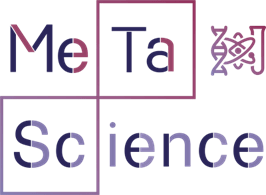By Ash Bond, PhD Creative Writing student, School of Humanities
As the first proofs of her debut novel arrive in bookshops, PhD Creative Writing student Ash Bond introduces us to the wonderful world of Peregrine Quinn and explains how her time at Bristol has influenced her writing.
My debut novel Peregrine Quinn and the Cosmic Realm is the first in a fantasy series, aimed at – primarily – an audience of nine to twelve-year-olds, what those in the publishing sphere refer to as ‘Middle Grade’. Middle Grade is where you will find The Chronicles of Narnia, Artemis Fowl, and Percy Jackson. It is also where you used to find Harry Potter, but now of course he gets his very own section (with matching rucksacks and light-up pens).

The idea that a magical world is just a wardrobe or a train platform away is commonplace on these shelves. In Middle Grade books if you say the right spells, tap the right rock, or mess with the wrong fairy, you could end up – quite literally – anywhere. In Peregrine Quinn, the entrance to the Cosmic Realm lies behind a bookshelf in a library (I am a writer with a vivid imagination, but I am also an academic and, as the adage goes, write what you know). It is in one of these libraries where the first book begins, with Peregrine and her godfather Daedalus breaking into Portal Number Nine in the Bodleian Library, Oxford.
One of my greatest joys in writing fantasy books for children is in framing these opportunities for the reader to look at this world, a world that can often appear so devoid of wonder, with renewed curiosity. Is that person on the Tube looking at a map of the London Underground, or the Under-Underground? Check next time, you just never know.
“The weaving of myth and imagination, of research and creativity, is a skill that the Creative Writing PhD at Bristol offers much practice in”
As I transition into the second year of my PhD in Creative Writing at the University of Bristol, I am also moving onto write the second in the Peregrine series. In this second book, the library door is opened wider, and the reader is invited further into the Cosmic Realm. As the world expands, I find myself drawing more and more upon the mythology that forms the basis of much of Peregrine’s universe, a universe that is at once both familiar, and deeply strange. Hekate for example, the classical goddess of witchcraft, in Peregrine’s world runs HekTek Laboratories and specialises in poisons. Daedalus, the architect who designed Minos’s famous labyrinth, in this novel has designed the portal system that connects the Terran Realm (Earth) with that of the Cosmic Realm (Olympus).

The weaving of myth and imagination, of research and creativity, is a skill that the Creative Writing PhD at Bristol offers much practice in. The Creative Writing PhD itself is made up of two strands: one creative and one critical, and is designed so that both strands complement and elevate each other. Like all PhD students, I am lucky enough to have two supervisors; one in Creative Writing, Dr Joanna Nadin, and one in Myth, Dr Vanda Zajko. Both of my supervisors are incredibly generous with their support and rigorous in their feedback, offering me the opportunity to grow as both a writer and as an academic.
The second book is only half written, and with at least one more book to write in this series I am beyond grateful for the consistent opportunities for inspiration – mythological and otherwise – that are offered by the dynamic, interdisciplinary academic environment provided by the university. And while I am very much at the beginning of both my PhD and my publication journey, I look forward to working with Bristol University as Peregrine’s adventure continues.
Ash Bond is a PhD Creative Writing student who recently secured a three-book deal with Piccadilly Press to bring her Peregrine Quinn series to life. The first book, Peregrine Quinn and the Cosmic Realm, will be published in April 2024 by Piccadilly Press which you can pre-order now. To find out more about Ash’s research, please email xn22400@bristol.ac.uk.
















